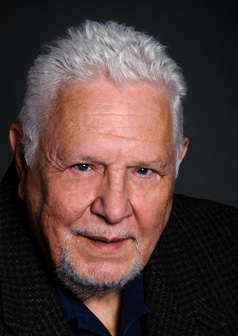Victor J. Stenger facts for kids
Quick facts for kids
Victor J. Stenger
|
|
|---|---|

Victor J. Stenger in 2011
|
|
| Born | January 29, 1935 Bayonne, New Jersey, U.S.
|
| Died | August 25, 2014 (aged 79) Honolulu, Hawaii, U.S.
|
| Nationality | American |
| Citizenship | United States of America |
| Alma mater | New Jersey Institute of Technology, UCLA |
| Spouse(s) | Phylliss Marcia Stenger (m. 1962) |
| Children | Noelle Green, Victor Andrew |
| Scientific career | |
| Fields | Particle physics, philosophy |
| Thesis | Low Energy K+d Scattering and the I=0 KN Interaction (1963) |
| Doctoral advisor | Harold K. Ticho |
Victor John Stenger (January 29, 1935 – August 25, 2014) was an American scientist. He studied tiny particles (called particle physics) and was also a philosopher and author. He was known for his ideas about science and religion.
After working as a scientist, Stenger wrote many popular books. These books explained complex topics like physics, quantum mechanics (the study of very small things), and cosmology (the study of the universe). He also wrote about philosophy, religion, and pseudoscience (ideas that pretend to be scientific but aren't). One of his famous books was God: The Failed Hypothesis (2007). His last book was God and the Multiverse (2014). He also wrote articles for the Huffington Post.
Stenger believed that science and religion should be kept separate. He famously said, "Science flies you to the moon. Religion flies you into buildings."
Contents
Victor Stenger's Life
Victor J. Stenger was born on January 29, 1935, in Bayonne, New Jersey. He grew up in a regular neighborhood. His father came from Lithuania, and his mother's parents were from Hungary. Victor Stenger passed away on August 25, 2014, when he was 79 years old.
Education and Work
Early Schooling and Degrees
Stenger went to public schools in Bayonne, New Jersey. He earned a Bachelor of Science degree in electrical engineering from Newark College of Engineering. This school is now called the New Jersey Institute of Technology.
Later, he moved to Los Angeles and studied at the UCLA. There, he earned a Master of Science degree and a PhD in physics.
Teaching and Research Roles
After his studies, Stenger became a professor in the Physics Department at the University of Hawaii. He worked there until he retired in 2000. He also taught and did research in other countries. He visited the University of Heidelberg in Germany and Oxford University in England.
He also worked as a researcher at places like the Rutherford Appleton Laboratory in England and the National Nuclear Physics Laboratory in Italy. He was also a philosophy professor at the University of Colorado at Boulder.
A Scientist's Discoveries
Stenger's first scientific paper was published in 1964. He continued his research until he retired in 2000. His work helped us understand tiny particles like gluons, quarks, and neutrinos. He also studied neutrino astronomy and very high-energy gamma rays.
A Philosopher's Ideas
Stenger was a strong supporter of philosophical naturalism. This idea suggests that everything can be explained by natural laws, not supernatural ones. He also believed in skepticism, which means questioning things before accepting them. He was an atheist.
He often spoke out against "intelligent design" and certain uses of the "anthropic principle". These ideas suggest that the universe was specially made for humans. Stenger believed that even complex things like consciousness and free will could eventually be explained by science. He also criticized people who used quantum mechanics to support paranormal or supernatural phenomena (things beyond normal science). He wrote many books and articles to show that these ideas were not scientific.
In 2008, Stenger participated in a conference called "Origins Conference." He debated with Christian thinkers and scientists about topics like the existence of God and how science and religion relate.
In 1992, a man named Uri Geller sued Stenger. Geller claimed Stenger had defamed him by questioning his "psychic powers." However, the lawsuit was dismissed, and Geller had to pay the court costs.
Important Positions
Victor Stenger held several important roles in organizations that promote science and critical thinking:
- President of Hawaiian Humanists (1990–94)
- Member of the Editorial Board for Free Inquiry magazine
- Member of the Society of Humanist Philosophers
- Fellow of the Committee for Skeptical Inquiry
- Fellow of the Center for Inquiry
- President of Colorado Citizens for Science (2002–06)
Stenger's Writings
Books for Everyone
Victor Stenger wrote many books to help general readers understand science and philosophy.
Articles and Columns
From 1998 to 2011, Stenger wrote a column called "Reality Check" for Skeptical Briefs. This was a newsletter from the Committee for Skeptical Inquiry.
Starting in 2010, he also became a regular science writer for the Huffington Post.
Honored as a Skeptic
Stenger is part of the "Pantheon of Skeptics" created by the Committee for Skeptical Inquiry (CSI). This special group honors deceased members of CSI who made important contributions to scientific skepticism.
See also
 In Spanish: Victor J. Stenger para niños
In Spanish: Victor J. Stenger para niños
 | James Van Der Zee |
 | Alma Thomas |
 | Ellis Wilson |
 | Margaret Taylor-Burroughs |

